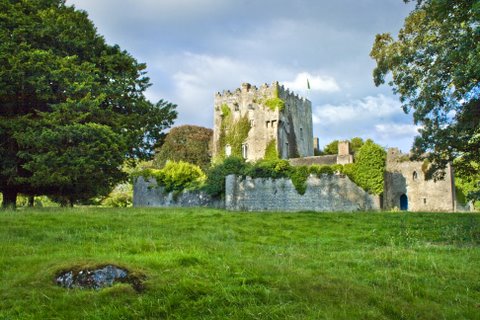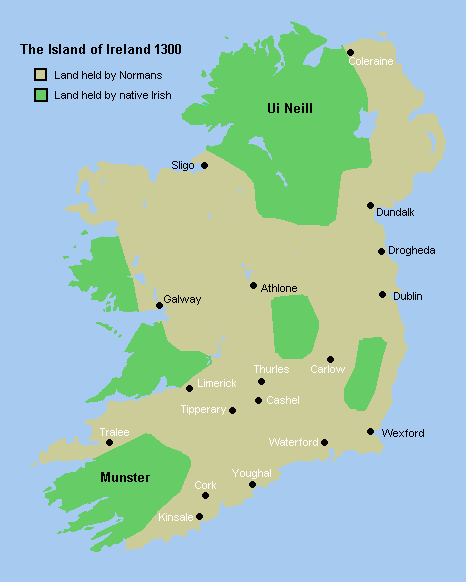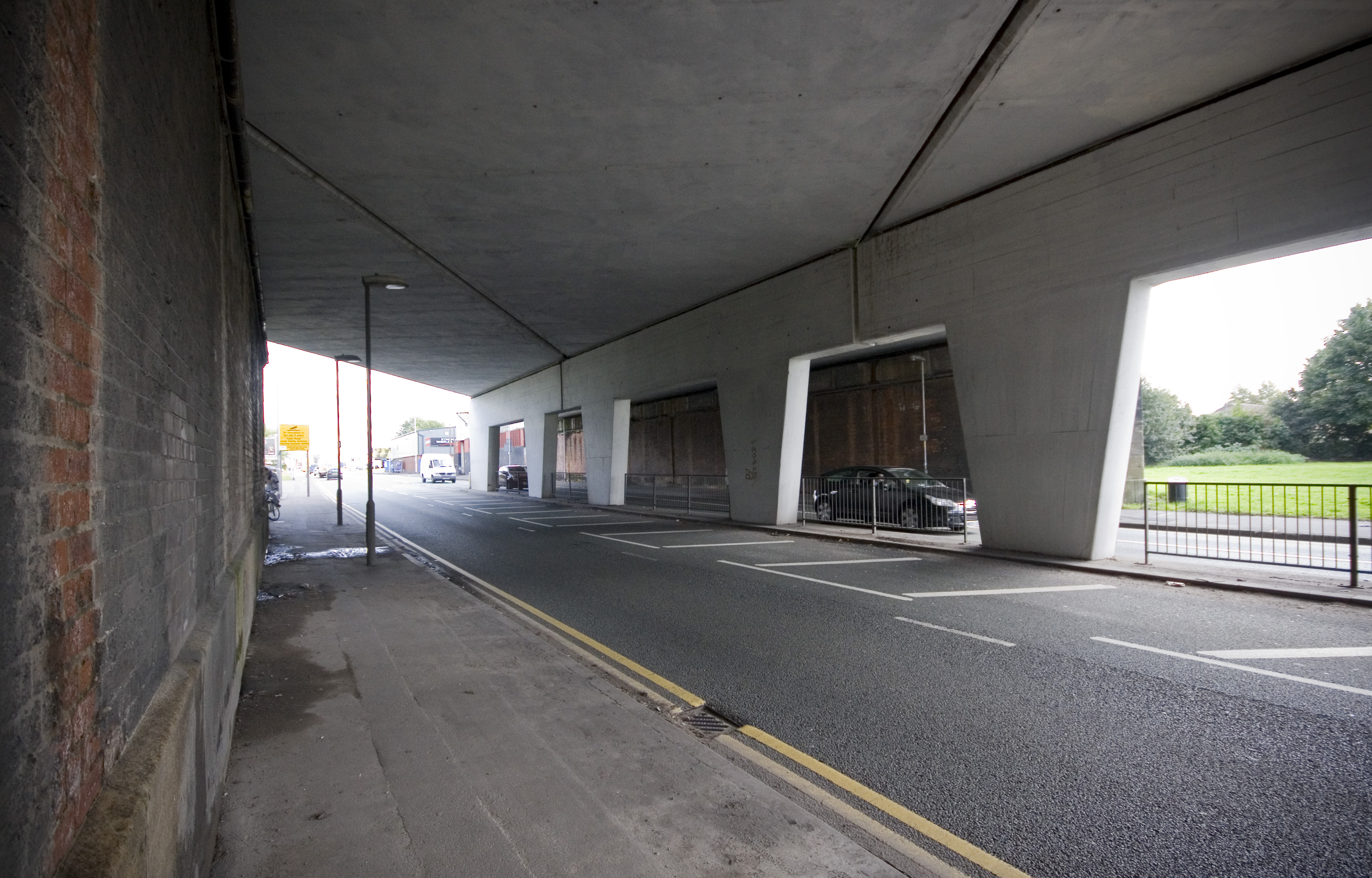|
Lusmagh
Lusmagh () is a civil parish in County Offaly, Ireland, bounded by three rivers: the Shannon, Lusmagh and Little Brosna to the west, east and south respectively. The town of Banagher is northeast across the River Lusmagh. Lusmagh was considered part of County Galway in 1628 and Connacht until 1373; the Lusmagh Roman Catholic parish is the only one in the Diocese of Clonfert east of the Shannon. According to the history of the O'Kellys of Hy-Many, means the plain of the healing herbs. In Christian times, the parish was named , "the Church of Mo Chua". Saint Mo Chua of Balla, also called Crónán, founded a monastery in 600 on the site of Cloghan Castle. The name Lusmagh was restored to the Catholic parish around 1810. Its parish church, named after St. Crónán, is about three miles southwest of Banagher. Cloghan Castle Cloghan Castle was originally built as a monastery by St. Crónán in 600. The Normans fortified the remains of the monastery in 1203 by building a defensi ... [...More Info...] [...Related Items...] OR: [Wikipedia] [Google] [Baidu] |
Joachim Kelly
Joachim Kelly (born 2 December 1955) is an Irish List of hurling managers, hurling manager, former Hurling, hurling player and a former Manager (Gaelic games), manager of the Offaly senior hurling team. Kelly played for club side Lusmagh GAA, Lusmagh and was a member of the Offaly senior hurling team for 19 seasons, during which time he usually lined out at midfield. Kelly began his hurling career at club level with Lusmagh GAA, Lusmagh. He broke onto the club's top adult team as a 15-year-old in 1971 and enjoyed his first success in 1973 when his club won the Offaly Junior A Hurling Championship, Offaly Junior Championship. Kelly later won an Offaly Senior Hurling Championship, Offaly Senior Championship medal in 1989 when Lusmagh GAA, Lusmagh won their title. He ended his club career with the Lusmagh GAA, Lusmagh junior B in 2003. At inter-county level, Kelly began his career at minor level in 1973 All-Ireland Minor Hurling Championship, 1973 before progressing onto the Offal ... [...More Info...] [...Related Items...] OR: [Wikipedia] [Google] [Baidu] |
Brendan Bermingham
Brendan Birmingham (born 2 May 1956 in Lusmagh, County Offaly) is an Irish retired sportsperson. He played hurling with his local club Lusmagh and has been a member of the Offaly County Offaly (; ) is a county in Ireland. It is part of the Eastern and Midland Region and the province of Leinster. It is named after the ancient Kingdom of Uí Failghe. It was formerly known as King's County, in honour of Philip II of Spain ... senior inter-county team from 1978 until 1986. References 1956 births Living people Lusmagh hurlers Leinster inter-provincial hurlers All-Ireland Senior Hurling Championship winners Offaly inter-county hurlers 20th-century Irish sportsmen {{Offaly-hurling-bio-stub ... [...More Info...] [...Related Items...] OR: [Wikipedia] [Google] [Baidu] |
Connacht
Connacht or Connaught ( ; or ), is the smallest of the four provinces of Ireland, situated in the west of Ireland. Until the ninth century it consisted of several independent major Gaelic kingdoms (Uí Fiachrach, Uí Briúin, Uí Maine, Conmhaícne, and Delbhna). Between the reigns of Conchobar mac Taidg Mór (died 882) and his descendant, Aedh mac Ruaidri Ó Conchobair (reigned 1228–33), it became a kingdom under the rule of the Uí Briúin Aí dynasty, whose ruling sept adopted the surname Ua Conchobair. At its greatest extent, it incorporated the often independent Kingdom of Breifne, as well as vassalage from the lordships of western Mide and west Leinster. Two of its greatest kings, Tairrdelbach Ua Conchobair (1088–1156) and his son Ruaidri Ua Conchobair (c. 1115–1198) greatly expanded the kingdom's dominance, so much so that both became High King of Ireland. The Kingdom of Connacht collapsed in the 1230s because of civil war within the royal dynasty, which enab ... [...More Info...] [...Related Items...] OR: [Wikipedia] [Google] [Baidu] |
Robert James Graves
Robert James Graves (27 March 1796 – 20 March 1853) was an Anglo-Irish surgeon after whom Graves' disease takes its name. He was President of the Royal College of Physicians of Ireland, Fellow of the Royal Society of London and the co-founder of the ''Dublin Journal of Medical Science''. He is also claimed to be the uncredited inventor of the second-hand on watches. Early life The eighth child of the Dean of Ardagh, Richard Graves, and Elizabeth Mary Drought (1767–1827), daughter of Rev. James Drought (1738–1820) D.D., of Dublin and Park, "a member of one of the principal families of the King's County (Offaly)," whose mother was the sister of Theaker Wilder. Wilder, Robert's father and maternal grandfather were all Senior Fellows of Trinity College Dublin, where in 1811 he was entered under his elder brother-in-law, Thomas Meredith, after receiving his early schooling in Downpatrick and Dublin. After a brilliant undergraduate career in the arts, he received a degree in ... [...More Info...] [...Related Items...] OR: [Wikipedia] [Google] [Baidu] |
Cloghan Castle
There are several structures named Cloghan Castle, all in Ireland: * Cloghan Castle in County Cork * Cloghan Castle in County Offaly * Loughrea Castle (also known as Cloghan Castle) in County Galway {{disambiguation ... [...More Info...] [...Related Items...] OR: [Wikipedia] [Google] [Baidu] |
Leinster
Leinster ( ; or ) is one of the four provinces of Ireland, in the southeast of Ireland. The modern province comprises the ancient Kingdoms of Meath, Leinster and Osraige, which existed during Gaelic Ireland. Following the 12th-century Norman invasion of Ireland, the historic "fifths" of Leinster and Meath gradually merged, mainly due to the impact of the Pale, which straddled both, thereby forming the present-day province of Leinster. The ancient kingdoms were shired into a number of counties for administrative and judicial purposes. In later centuries, local government legislation has prompted further sub-division of the historic counties. Leinster has no official function for local-government purposes. However, it is an officially recognised subdivision of Ireland and is listed on ISO 3166-2 as one of the four provinces of Ireland. "IE-L" is attributed to Leinster as its ''country sub-division'' code. Leinster had a population of 2,858,501 according to the prelim ... [...More Info...] [...Related Items...] OR: [Wikipedia] [Google] [Baidu] |
Roman Catholic Diocese Of Clonfert
The Diocese of Clonfert () is a Latin Church diocese of the Catholic Church in the western part of Ireland. It is in the Metropolitan Province of Tuam. Michael Duignan was appointed by the Holy See on 16 July 2019 and ordained bishop on 13 October 2019. It is Ireland's smallest diocese by population and territory with a declining number of clergy and, in recognition of this, in Feb 2022 the Vatican united the diocese ''in persona episcopi'' with Michael Duignan serving simultaneously as Bishop of Clonfert and of Roman Catholic Diocese of Galway, Kilmacduagh and Kilfenora. Territory The diocese covers almost the whole of East Galway, with one parish ( Lusmagh) in County Offaly while the parishes of Taughmaconnell, Creagh and the half-parish of Ballinasloe lie in County Roscommon. This was the ancient territory of the kingdom of Uí Maine (Hy-Many), as it existed when the diocese was formed. In fact, the bishop of the diocese was sometimes referred to as the Bishop of Hy-Man ... [...More Info...] [...Related Items...] OR: [Wikipedia] [Google] [Baidu] |
County Offaly
County Offaly (; ) is a Counties of Ireland, county in Republic of Ireland, Ireland. It is part of the Eastern and Midland Region and the Provinces of Ireland, province of Leinster. It is named after the Ancient Ireland, ancient Kingdom of Uí Failghe. It was formerly known as King's County, in honour of Philip II of Spain. Offaly County Council is the Local government in the Republic of Ireland, local authority for the county. The county population was 82,668 at the 2022 census. Geography and political subdivisions Offaly is the 18th largest of Ireland's 32 counties by area and the 24th largest in terms of population. It is the fifth largest of Leinster's 12 counties by size and the tenth largest by population. Physical geography Tullamore is the county town and largest town in Offaly and is the List of urban areas in the Republic of Ireland, 30th largest in Ireland. Offaly borders seven counties: County Galway, Galway, County Roscommon, Roscommon, County Tipperary, Tippe ... [...More Info...] [...Related Items...] OR: [Wikipedia] [Google] [Baidu] |
Irish Standard Time
Ireland uses Irish Standard Time (IST, UTC+01:00; ) in the summer months and Greenwich Mean Time ( UTC+00:00; ) in the winter period. Roughly two-thirds of the Republic is located west of the 7.5°W meridian. Thus the local mean time in most of Ireland is closer to UTC-01:00 time than to GMT. The Standard Time Act 1968 legally established that "the time for general purposes in the State (to be known as standard time) shall be one hour in advance of Greenwich mean time throughout the year". This act was amended by the Standard Time (Amendment) Act 1971, which legally established Greenwich Mean Time as a winter time period. Ireland therefore operates one hour behind its statutory standard time during the winter period, and reverts to standard time in the summer months. This definition contrasts with the practice of other states in the European Union, which operate one hour ahead of their standard time during the summer period, but produces the same result. The net effect is t ... [...More Info...] [...Related Items...] OR: [Wikipedia] [Google] [Baidu] |
Normans
The Normans (Norman language, Norman: ''Normaunds''; ; ) were a population arising in the medieval Duchy of Normandy from the intermingling between Norsemen, Norse Viking settlers and locals of West Francia. The Norse settlements in West Francia followed a series of raids on the French northern coast mainly from what is now Denmark, although some also sailed from Norway and Sweden. These settlements were finally legitimized when Rollo, a Scandinavian Vikings, Viking leader, agreed to swear fealty to Charles the Simple, King Charles III of West Francia following the Siege of Chartres (911), siege of Chartres in 911, leading to the formation of the ''County of Rouen''. This new fief, through kinship in the decades to come, would expand into what came to be known as the ''Duchy of Normandy''. The Norse settlers, whom the region as well as its inhabitants were named after, adopted the language, Christianity, religion, culture, social customs and military, martial doctrine of the Wes ... [...More Info...] [...Related Items...] OR: [Wikipedia] [Google] [Baidu] |
Counties Of Ireland
The counties of Ireland (Irish language, Irish: ) are historic administrative divisions of the island. They began as Normans in Ireland, Norman structures, and as the powers exercised by the Cambro-Norman barons and the Old English (Ireland), Old English nobility waned over time, new offices of political control came to be established at a county level. The number of counties varied depending on the time period, however thirty-two is the traditionally accepted and used number. Upon the partition of Ireland in 1921, six of the traditional counties became part of Northern Ireland. In Northern Ireland, Counties of Northern Ireland, counties ceased to be used for local government in 1973; Local government in Northern Ireland, districts are instead used. In the Republic of Ireland, some counties have been split resulting in the creation of new counties: there are currently 26 counties, 3 cities and 2 cities and counties that demarcate areas of local government in the Republic of Ire ... [...More Info...] [...Related Items...] OR: [Wikipedia] [Google] [Baidu] |
Manchester Martyrs
The Manchester Martyrs () were three Irish Republicanism, Irish Republicans – William Philip Allen, Michael Larkin, and Michael O'Brien – who were Hanging, hanged in 1867 following their conviction of murder after an attack on a police van in Manchester, England, in which a police officer was accidentally shot dead, an incident that was known at the time as the Manchester Outrages. The three men were members of the Irish Republican Brotherhood, also known as the Fenians, an organisation dedicated to ending British rule in Ireland, and were among a group of 30 to 40 Fenians who attacked a horse-drawn police van transporting two arrested leaders of the Brotherhood, Thomas J. Kelly (Irish nationalist), Thomas J. Kelly and Timothy Deasy, to Belle Vue Gaol. Police Sergeant Charles Brett (police sergeant), Charles Brett, travelling inside with the keys, was shot and killed while looking through the keyhole of the van as the attackers attempted to force the door open by shooting the ... [...More Info...] [...Related Items...] OR: [Wikipedia] [Google] [Baidu] |




